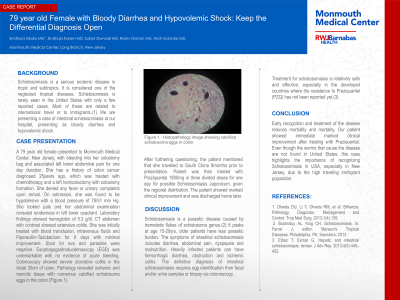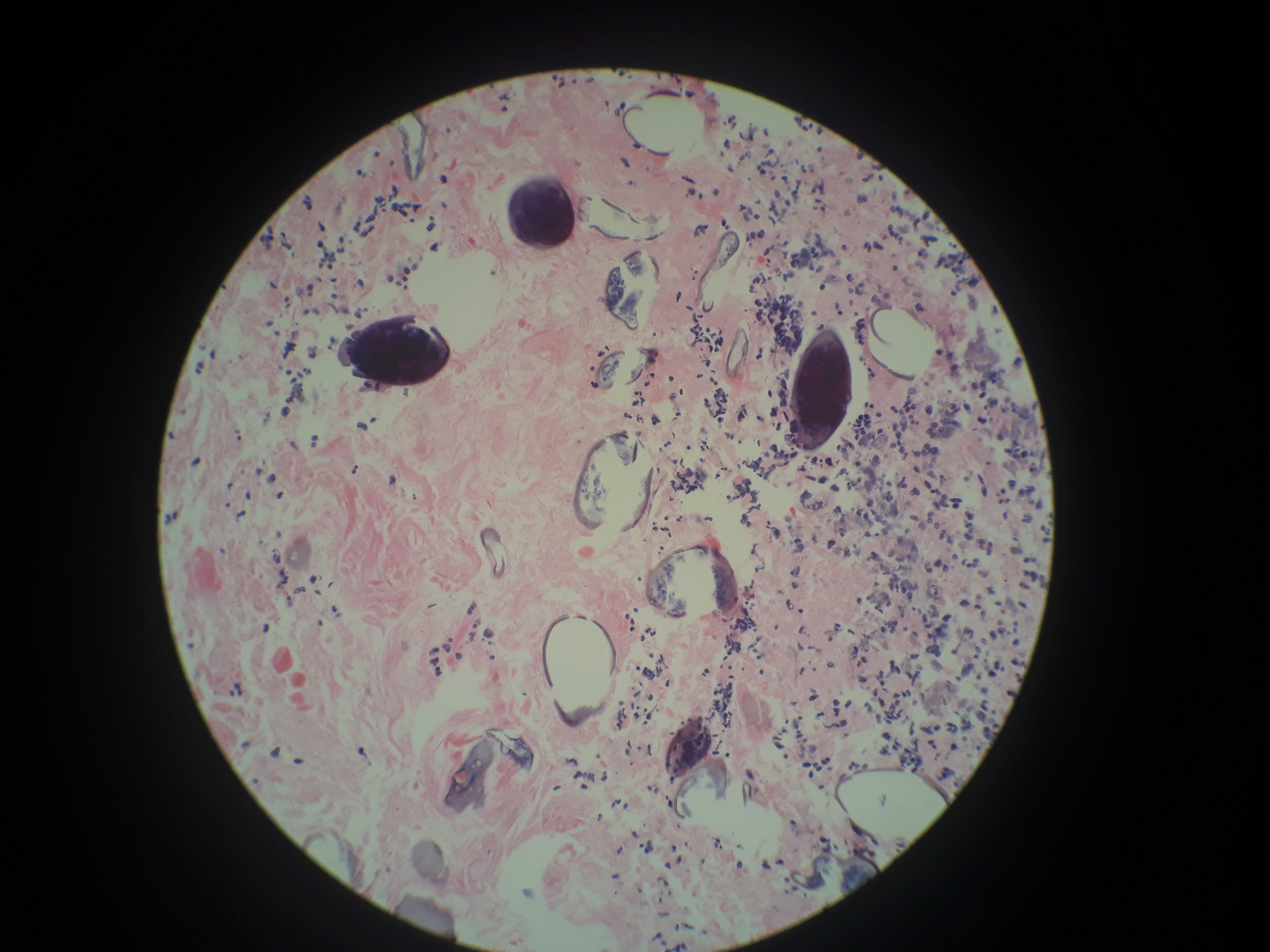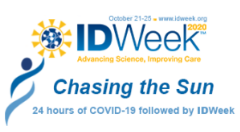Category: Enteric Infection
Poster Session: Enteric Infection
715 - A 79 year old Female with Bloody Diarrhea and Hypovolemic Shock: Keep the Differential Diagnosis Open


Sindhura Inkollu
MD
Monmouth Medical Center
long branch, New JerseyDisclosure: I do not have any relevant financial / non-financial relationships with any proprietary interests.
- SK
Sindhuja Korem
MD
monmouth medical center
long branch, New JerseyDisclosure: I do not have any relevant financial / non-financial relationships with any proprietary interests.
- sD
sukrut Dwivedi
MD
monmouth medical center
long branch, New JerseyDisclosure: I do not have any relevant financial / non-financial relationships with any proprietary interests.
- ro
ramy osman
MD
monmouth medical center
long branch, New JerseyDisclosure: I do not have any relevant financial / non-financial relationships with any proprietary interests.
- AI
Arati Inamdar
MD
monmouth medical center
long branch, New JerseyDisclosure: I do not have any relevant financial / non-financial relationships with any proprietary interests.
Presenting Author(s)
Co-Author(s)
Background:
Schistosomiasis is considered one of the neglected tropical diseases which is rarely seen in USA. We are reporting herein a case of intestinal schistosomiasis presented as bloody diarrhea and hypovolemic shock at Monmouth Medical Center, New Jersey.
Methods:
Case Report:
A 79 year old female presented with bleeding into her colostomy bag and associated left lower abdominal pain for one day duration. She has a history of colon cancer diagnosed 25years ago, which was treated with chemotherapy and a left hemicolectomy with colostomy formation. On admission, her blood pressure was 78/51 mm Hg. She looked pale and her abdominal examination revealed tenderness in left lower quadrant. Laboratory findings showed hemoglobin of 5.3 g/dl. CT abdomen showed extensive colitis. She was resuscitated and treated with Piperacillin-Tazobactum for 6 days with minimal improvement. Stool for ova and parasites were negative. EGD was unremarkable with no evidence of acute bleeding. Colonoscopy showed severe ulcerative colitis in the distal 30cm of colon. Pathology revealed ischemic and necrotic tissue with numerous calcified schistosoma eggs in the colon (Figure 1). After furthering questioning, the patient mentioned that she travelled to South China 8months prior to presentation. Patient was then treated with Praziquental for one day for possible Schistosomiasis Japonicum, given the regional distribution. The patient showed marked clinical improvement and was discharged home later.Figure 1: Histopathology image showing calcified schistosoma eggs in colon
Results:
Discussion:
Intestinal Schistosomiasis is a parasitic disease which peaks at age 15-20yrs, older patients usually have less parasitic burden. Symptoms include diarrhea, abdominal pain, dyspepsia and malnutrition. Heavily infected patients can have hemorrhagic diarrhea, obstruction and ischemic colitis. Definitive diagnosis requires egg identification. Treatment is relatively safe and effective, especially in the developed countries where the resistance to Praziquantel (PZQ) has not been reported yet.
Conclusion: Even though the worms that cause the disease are not found in USA, this case highlights the importance of recognizing Schistosomiasis especially in New Jersey, due to the high traveling immigrant population, as early recognition and treatment reduces morbidity and mortality.

